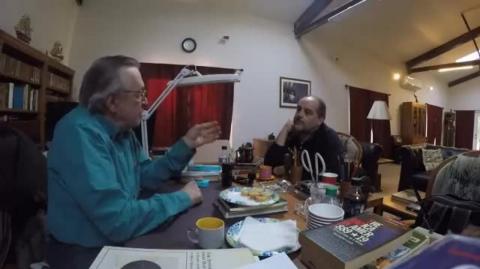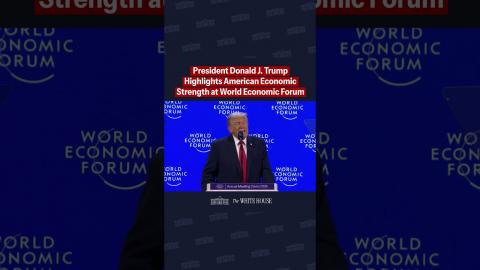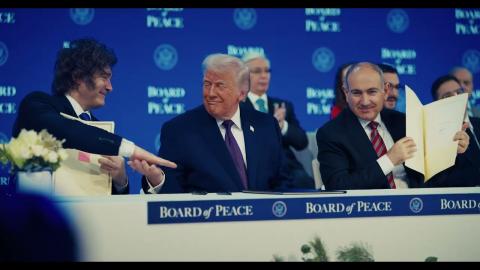The São Paulo Forum, the anesthetic version (Olavo de Carvalho)
The São Paulo Forum, the anesthetic version
After hiding for sixteen years the existence of the most powerful Latin American political entity, the chic media of this country, defeated by the unstoppable spread of facts on the internet, now tries to disguise, as best it can, the most vile and criminal journalistic embarrassment of all time. The tactic it uses for this is even more depraved: slandering, defaming, sullying the reputation of the few who honored the duties of journalism while it was occupied only with prostituting itself, selling silence in exchange for government propaganda funds.
Ashamed of itself, it doesn’t even have the dignity to name these honorable exceptions. It designates them impersonally, feigning superiority by using generic pejoratives. The most common is “far-right radicals.” I find it again in the article “The limits of a leftist wave,” signed by César Felício in the newspaper Valor on the 12th.
The author is an absolute nobody, and I would never comment on a single line of his fabrication if nobodies hadn’t become, in a journalism of concealment, the most necessary and highly regarded professionals. Please, don’t accuse me of hunting mosquitoes. Understand my drama: under present circumstances, refusing to speak about nobodies would leave me completely devoid of national material for this column.
The first thing I have to say to this kid is simple: “Far-right radical” is grandma. In the past, this qualifier was used for those who advocated the systematic killing of communists just as communists advocate and practice the systematic slaughter of entire populations. Nowadays, to be labeled as such, it’s enough to be against abortion or gay marriage.
It’s enough to believe that the São Paulo Forum exists and is dangerous. It’s enough to do the math and notice that hundreds of prisoners died from torture in the Cuban Guantanamo and none in the American one. It’s enough to appeal to elementary mathematics and conclude that the Iraq war killed far fewer people than Saddam Hussein’s regime under the complacent eyes of the UN. If you commit any of these mortal sins, there comes the infamous label stuck to you indelibly, like a brand of a runaway slave or a cattle ear tag. And it doesn’t come from any party rag or petista pamphlet. It comes from Folha de São Paulo, from O Globo, from Estadão, from the newspaper Valor — organs of the reactionary bourgeoisie, according to the official PT website.
What can I conclude from this, objectively, if not that the radical left managed to impose on the mainstream media its ideological measurement scale and corresponding vocabulary, now accepted as centrist, balanced, mainstream opinion, while opinions that belonged to the mainstream media yesterday or the day before can no longer be shown to the public because they have become politically incorrect? Is it right-wing extremism to conclude that the axis, the center, shifted sharply to the left, criminalizing everything to its right? Is it right-wing extremism to conclude that the only right admitted as decent in the chic media is tucanismo — abortionist, gay activist, racial quota supporter, disarmament advocate, politically correct to the max, patron of MST and affiliated with the Socialist International, besides being Bettista and Boffista, if not openly anti-Christian? Is it right-wing extremism to notice that the most salient trait of this well-behaved right is the radical abstinence from any anti-communist impulse? Is it right-wing extremism to understand that this phenomenon is the literal and exact manifestation of hegemony as defined by Antonio Gramsci? Is it right-wing extremism to conclude that the media establishment of this country is, as a whole, an organ of militant left even in its moments of superficial anti-PT irritation, when it has never uttered a single criticism of the ruling party that did not come from inside the left itself and that was not previously purged of any trace of right-wing ideological content? Any intellectually honest person knows that a factual judgment cannot be overturned by infamous labeling. It must be challenged by denying the facts. If you want to label it, do so after proving it false. Not before. Not as a substitute for denial. Now, this Felício, instead of denial, offers brutal confirmation. Look:
The group that meets starting today in San Salvador [...] goes by the name “São Paulo Forum” and was born under the sponsorship of the PT in 1990. The annual meetings don’t usually attract much attention, except from certain far-right radicals in Brazil.
Well then, how is it possible that annual leftist meetings repeated over a decade and a half, with hundreds of participants, including several heads of state, do not attract attention except from far-right radicals? Did nobody on the left pay attention to the São Paulo Forum? Did Mr. Lula deliver an entire presidential speech about it without paying the slightest attention to the entity he was talking about? Before that, when he personally presided over the Forum’s sessions until 2002, did he pay no attention to them? Did he enter a hypnotic trance and babble messages from beyond, forgetting everything upon waking?
Did the leftist journalists, who attended the debates by the dozens, go there out of pure distraction, fall asleep during the assemblies, and return home with nothing to report? Did Mr. Bernardo Kucinsky, one of the Forum’s founders, who emotionally witnessed its birth at a meeting between Fidel Castro and Lula, pay the slightest attention to that supreme moment of his life as a leftist militant? Paid with public money to report presidential acts to voters, did he keep silent out of mere distraction, and also put aside the facts to tell them later in his memoirs, where he only included them because they had no importance?
Come on, silly boy, don’t you know the difference between inattention and extreme attention combined with a deliberate purpose to hide? That you are devoid of a sense of truth, fine. Without that, you don’t rise in Brazilian journalism. But do you really need to be deprived also of a sense of the ridiculous to the point of trying to minimize the importance of the Forum and then, citing an official document of the entity, boast that “at the group’s first meeting, in 1990, the members were in government in only one country: Cuba. Today they enjoy power in Venezuela, Brazil, Bolivia, Nicaragua, Argentina, Chile, Uruguay, and Ecuador”?
Do you really think that the organization that planned and led the most spectacular and overwhelming leftist expansion ever seen on the continent is a nothing, a tiny nothing, that only far-right radicals or conspiracy theorists could see something in? In fact, Felício himself sees something there. He cites the official document: “We have come to control a quota of power, but the other quotas remain under the control of the dominant classes. The so-called markets, the major communication companies, sectors of the state high bureaucracy, the central commands of the Armed Forces, the legislative and judicial powers, besides the influence of foreign governments, compete with the power we possess.”
In other words: the entity that already dominates the governments of nine countries does not admit, does not tolerate, not even tolerate that any portion of power, no matter how small, is outside its hands. Not even the communication companies and the judiciary, without whose freedom democracy does not survive one minute.
With the greatest naturalness, as if it were a divine heritage inherent to its essence, the São Paulo Forum, with the smiling approval of our ruling party, claims dictatorial power over the entire continent.
Felício reads this document thus: “The limits to absolute power seem to bother the meeting participants.” They seem, only seem. Who would be alarmed by appearances, if not far-right radicals? After all, they keep seeing communists under their beds, right? To reassure the population, Felício shows that there is no socialism in the Forum, only the good old nationalist populism, so slandered by imperialism agents. “The same discourse was present in the opposition to Perón and Getúlio in the 1940s and 50s. It reappeared, almost identical, in the type of attack received last year by López Obrador in Mexico and Evo Morales in Bolivia.”
The fact that, fooled by thousands of Felícios, even opposition members fear naming names, preferring to speak of “populism” instead of communism, is used as proof that the Forum is not a communist organization. The fact is that the ideas and people of the old populists never appear cited in the Forum’s documents as examples to be followed. On the contrary, appeals to the communist revolutionary tradition resurface at every line, with all their heroes and symbols, with all the dreadful linguistic ticks of the most typical and obstinate Marxist-Leninist jargon, accompanied by the explicit, endlessly repeated declaration that the goal is socialism.
But surely, all the Forum participants, all those seasoned revolutionary militants trained in Cuba, China, and the former USSR, are mistaken about their own ideology and goals. They only think they are communists, socialists, Marxists. Felício is the one who, penetrating with his X-ray eyes into their souls, knows that they are none of that. They are Getulistas who ignore themselves.
The proof? He does not refuse to provide it. It is this: “Before being a true march toward socialism, Chávez’s offensive [...] suggests the crowning of a process of power concentration.” Did you understand the deep logic? If it is power concentration, it is not socialism. Too bad nobody told Marx, Lenin, Stalin, Mao, Fidel, and Che Guevara. All of them always understood, on the contrary, that power concentration is the only path to socialism, it is the very essence of the revolutionary process. But perhaps they were mistaken, just like the Forum crowd. The one who understands the business is César Felício.
Back when there was journalism in Brazil, a guy like this wouldn’t even be assigned to cover a tabletop soccer game. Today, he is a kind of model, reproduced by the hundreds in all newsrooms. The result is obvious. Do a test. According to a survey by Folha de São Paulo, the majority opinion of Brazilians is sharply conservative. They are against gay marriage, against abortion, against racial quotas, against civilian disarmament. They are against everything Felícios love. They are even in favor of the death penalty for heinous crimes. And they trust the Armed Forces infinitely more than the journalistic class that incessantly defames them. How many journalists, in the newsrooms of large media companies, align with this majority opinion? I didn’t do a poll, but from personal experience, I affirm: few or none. The daily reading of newspapers confirms this most clearly.
Brazilian public opinion is neither reflected nor represented by the mainstream media. It has no right to a voice, except for the rare exception of some occasional contributor, only to then be shown as an example of extremist aberration, happily compensated by the plethora of serene, normal, and balanced columnists who equate George W. Bush to Hitler and Abu Ghraib to Auschwitz. The very idea that media can only be balanced when it proportionally reflects the division of currents of opinion in the country has completely vanished from the national memory. The simple act of stating this has become proof of radical right-wingism.
The result: the microscopic elite of leftist chatterers who dominate the newsrooms (no more than two thousand people) allow themselves to take their own opinion as the measure of human normality, condemning the general preferences of the nation as pathological and virtually criminal.
Those who place themselves at such heights are automatically freed from having to answer to reality. They don’t want to know it; they want to transform it.
To transform it, it’s not necessary to show people the facts: it is necessary to feed them idiotic beliefs that induce them to behave in the most suitable way to favor the transformation. What is expected from the business class that reads the Valor newspaper? That they remain idiotized and passive, drunk with false security, incapable of mobilizing in time to oppose the revolutionary wave submerging the continent.
That is why Felícios denied them knowledge of the São Paulo Forum for sixteen years. That is why today, no longer able to carry forward the disappearance operation, they resort to the anesthesia operation, cynically calling it journalism. And they are paid to do so by the very media businessmen whose companies the São Paulo Forum promises to silence or expropriate along with all other instruments of freedom of exercise, in a future sooner than anyone imagines.
0



 Sant77
Sant77

 OverSol Creations
OverSol Creations





 RT
RT
 KerrAvon
KerrAvon



 Ron DeSantis
Ron DeSantis
 Styxhexenhammer666
Styxhexenhammer666
 The White House
The White House


 Matt Kohrs
Matt Kohrs
 NiilistaCetico
NiilistaCetico

Log in to comment